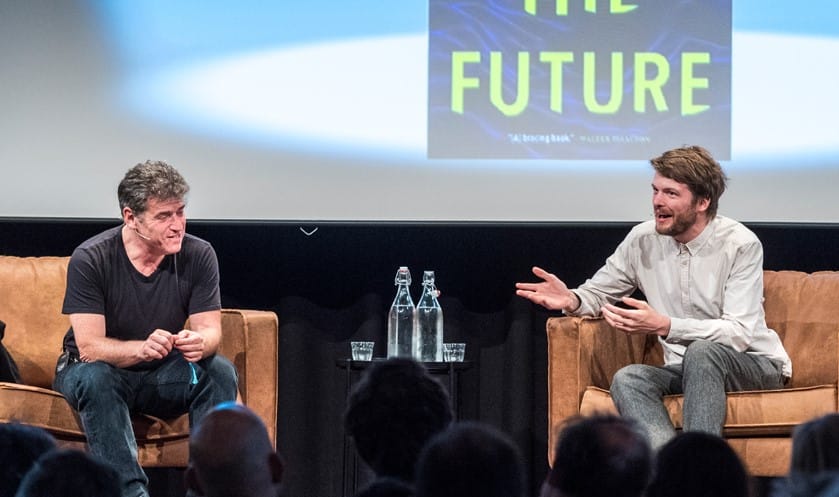Introduction to Andrew Keen – How to Fix The Future
It was only ten years ago that Andrew Keen was routinely discarded as a troll by most tech thinkers.
“The problem is that Keen’s book is the worst of link bait. It’s link whoring. Or should I say talk-show prostitution?”, foamed tech apostle Jeff Jarvis.
The influential tech and culture blog Boing Boing was not to be outdone, and called Keen a “Spokesdouche for internet-fearing reactionaries everywhere.”
With so many rhetorical kitchen sinks being thrown his way, one starts suspecting that Mr. Keen had indeed hit a nerve. Or was it just that criticism from within tends to feel like cold betrayal? Because in the 1990s, he had started out as an enthusiastic startup entrepreneur in Silicon Valley. But as he witnessed the digital revolution unfold, he began to develop second thoughts.
In his 2007 book, Cult of The Amateur, he made a case for the cultural value of gatekeepers, people like A&R managers, editors and journalists, whose work seemed to be fatally threatened by the combined forces of unfiltered self-publishing and online piracy. The internet, he argued, is killing our culture.
If you’ll recall, this was back when the internet still seemed a place full of democratic potential, that was going to empower the powerless, give voice to the voiceless, and cut out all middle men. So when mr. Keen spoke in defense of those old elites, many internet evangelists did not fail to be enraged.
But he’s certainly not one to be shied away by a little controversy. In his next book, ‘Digital Vertigo’, published in 2012, he attacked the cult of social media: not only do they turn us into narcissists, he said, they also seduce us to turn over our personal data to tech companies that cynically use them to make staggering profits.
And this is but one way in which the internet has not fulfilled its promise of creating a more egalitarian society. His 2015 book ‘The internet is not the answer’ is filled with examples of how the original democratic and decentralized ideals of the internet were perverted. Entire industries are disrupted by tech companies that have failed to provide us with new jobs. Companies like Uber have become phenomenally wealthy, but refuse to take any responsibility for the drivers doing the actual work under very insecure conditions. Even worse: we have all become unpaid employees of companies like Google and Facebook, by allowing them to monetize our data. What we have been given in return is a system of online surveillance that would have made the Stasi salivate.
In 2018, confronted with the fake news explosion, the Cambridge Analytica scandal, and the way in which companies like AirBNB are changing our cities, such comments no longer sound like trolling. They sound like mainstream analysis. Even Jeff Jarvis seems to have lost some of his confidence nowadays.
But Andrew Keen seems to be ever a step ahead of us. Or ever the contrarian, if you will.
Because in 2018, Andrew Keen, of all people, seems to have softened up. Instead of another scathing indictment of Silicon Valley, he has offered us a new book, ‘How to Fix the Future’. In which he talks to thinkers and techies and travels to faraway places like Estonia and Singapore, in an effort to look for solutions. And he seems cautiously optimistic that we might find them; that we can indeed make human values prevail in a technologically overwhelming age.
This would of course be great news. But one of the things I was wondering about while reading his book is: what can we do to help make this happen? How can we, who are neither EU regulators nor tech entrepreneurs, stop being powerless consumers of Google’s and Uber’s services, and become empowered digital citizens?
I am confident mr. Keen has some valuable thoughts to contribute to such questions.
Seije Slager
